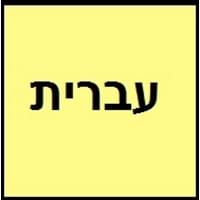Chewa greetings vs Hebrew greetings
Please in Chewa and Hebrew
When you want to request someone for something then it is necessary to say please. But if you don't know how to say please in Chewa and Hebrew then it disappointing. So, Chewa Greetings vs Hebrew greetings helps us to learn please in Chewa and Hebrew language.
- Please in Chewa : Chonde.
- Please in Hebrew : בבקשה (bevekshah).
In some situations, if you need to apologize then Chewa greetings vs Hebrew greetings provides to say sorry in Chewa and Hebrew language.
- Sorry in Chewa : pepani.
- Sorry in Hebrew : סליחה! (Slicha).
You can also learn useful phrases of Best Languages to Learn.
How are you in Chewa and Hebrew
After you say hello to someone then you will want to ask how are you? And if you wish to know what's how are you in Chewa and Hebrew then Chewa greetings vs Hebrew greetings helps you.
- How are you in Chewa is Muli bwanji?.
- How are you in Hebrew is מה שלומך? (ma shlomxa).
Even though greetings remain same in almost all the dialects of the language, their pronunciations and accents vary from each dialect to dialect. Know more about such dialects on Chewa vs Hebrew Dialects.
Other Chewa and Hebrew Greetings
Are you finding few more Chewa greetings vs Hebrew greetings? So let's compare other Chewa and Hebrew greetings.
- Good Morning in Chewa is M'mawa wabwino.
- Good Night in Chewa is Usiku wabwino.
- Good Morning in Hebrew is בוקר טוב (Boker tov).
- Good Night in Hebrew is לילה טוב (Laila tov).





